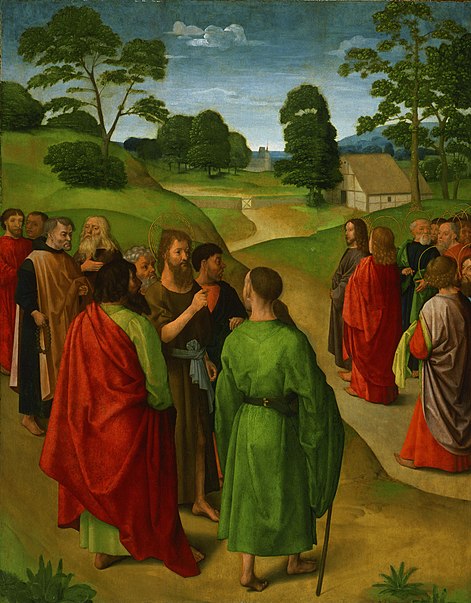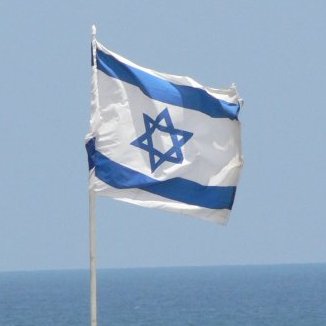The kingdom of heaven is like unto a certain king, which made a marriage for his son.
Several times Jesus got tested. The Pharisees loved to tempt him to give the wrong answers or to give them something to show that he was not a real rebbe or master rabbi, not having enough knowledge of Scriptures.
Jesus answered the Pharisees and Sadducees by going on with his ministry as it happened more, speaking again by parables. They came to him with quibbles, he replied by parables. Though the Pharisees perceived that he spoke of them, it did not stop them to attack him further. Their partly concealed anger was all the greater because, through fear of the multitude, they could not yet lay hands on Jesus, and put him to death. They had wilfully closed their eyes to the light, set it continued to shine upon them.
When we look at the Parable of the King and the marriage of His son, we should see that it is all about Jehovah God and the bridegroom, Jehovah’s son, Jesus Christ. This parable must be distinguished from the one recorded in Luke 14:16-24, which was spoken on another occasion, and with a different object. It would be worth while to compare the two parables, and to note their resemblances and their differences.
In this parable we have the Great King, or King of glory celebrate the union of his Son with our humanity. The divine Son of God, as the Son of David,is the central figure of the feast presented by the King, Who first of all invited His Own People. But we come to hear that many of them who were invited were unwilling to come. That is also what we clearly can see what happened with the People of Israel, today many living in the darkness, and lots of Jews even not believing any more in God.
As it was long ago said by a Spartan, that the Athenians knew what was right, but did not choose to practice it; so Christ now brings it as a reproach against the Jews, that they gave utterance to beautiful expressions about the kingdom of God, but, when God kindly and gently invited them, they rejected His grace with disdain. There is no room to doubt that the discourse is expressly levelled against the Jews.
Matthew says that a king made a marriage for his son: Luke only mentions a great supper. The former speaks of many servants, while the latter refers to no more than one servant; the former describes many messages, the latter mentions one only; the former says that some of the servants were abused or slain, the latter speaks only of their being treated with contempt. Lastly, the former relates that a man was cast out, who had gone in to the marriage without a wedding garment, of which Luke makes no mention.
Jehovah God bestowed on the Jews distinguished honour, by providing for them, as it were, a hospitable table; but they despised the honour which had been conferred upon them. The marriage of the King’s son is explained by many commentators to mean, that Christ is the end of the Law (Romans 10:4), and that God had no other design in his covenant, than to make His sent one, the only begotten son of God, the Governor of His people, and to unite the Church to him by the sacred bond of a spiritual marriage.
When Jesus says, that the servants were sent to call those who were invited, these words are intended to point out a double favour which the Jews had received from God; first, in being preferred to other nations; and, secondly, in having their adoption made known to them by the prophets.
The allusion is to a practice customary among men, that those who intended to make a marriage drew up a list of the persons whom they intended to have as guests, and afterwards sent invitations to them by their servants. In like manner, God elected the Jews in preference to others, as if they had been his familiar friends, and afterwards called them by the prophets to partake of the promised redemption, which was, as it were, to feast at a marriage.
We know that all received an offer of the same salvation, of which they were deprived by their ingratitude and malice; for from the commencement, God’s invitation was impiously despised by that people.
The gospel is a glorious festival in honour of that wondrous marriage. It was a grand event, and grandly did the King, propose to celebrate it by a wedding feast of grace. The marriage and the marriage festivities were all arranged by the King, He took such delight in His only-begotten and well-beloved Son, that everything that was for his honour and joy afforded infinite satisfaction to the great Father’s heart. In addition to the son’s equal glory with the Father as Creator, Preserver, and Provider, by his marriage he was to be crowned with fresh honours as Saviour, Redeemer, and Mediator.
+
Preceding
Matthew 22:1-6 – The Nazarene’s Commentary: Parable of Invitation to a Marriage
Matthew 22:7-10 – The Nazarene’s Commentary: Invitations after City’s Destruction
Matthew 22:11-13 – The Nazarene’s Commentary: King’s Inspection and Marriage Garments
Matthew 22:14 – The Nazarene’s Commentary: Many Invited – Few Chosen
Matthew 22:15-22 – The Nazarene’s Commentary: Caesar’s Things and God’s Things
Matthew 22:23-28 – The Nazarene’s Commentary: Sadducees Question on the Resurrection
Matthew 22:29-33 – The Nazarene’s Commentary: Resurrection Proof from Moses
Matthew 22:34-40 – The Nazarene’s Commentary: Which Is the Greatest Commandment
Matthew 22:41-46 – The Nazarene’s Commentary: Jesus Asks a Trump Question
Additional readings to Matthew 22:41-46
A Look of the Expositor Bible at The Marriage Feast {Matthew 22:1-14 }
A Look of the Expositor Bible at The Ordeal of questions {Matthew 22:15-46 }

 Like Jesus offered himself as a
Like Jesus offered himself as a 



















 Bijbelvorsers Webs
Bijbelvorsers Webs Belgische Vrije Christadelphians / Belgian Free Christadelphians – Old Google Main Website
Belgische Vrije Christadelphians / Belgian Free Christadelphians – Old Google Main Website Christadelphian Ecclesia
Christadelphian Ecclesia Hoop tot Leven – Redding in Christus
Hoop tot Leven – Redding in Christus
Recent Comments